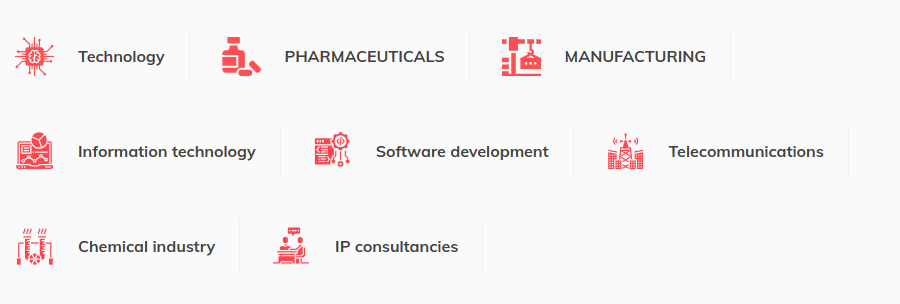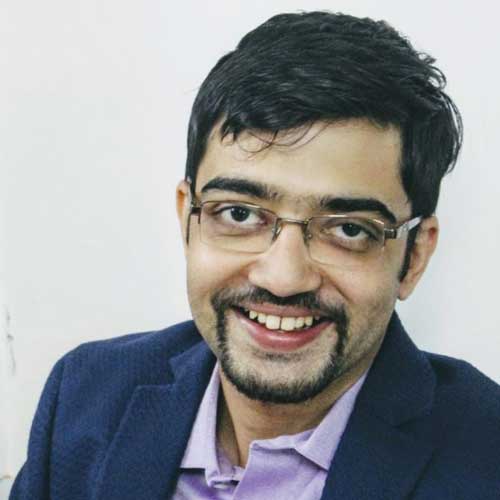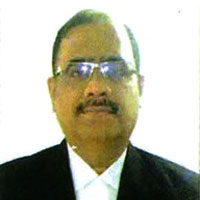Introduction
Do you know the amount of settlement in Apple Inc. vs. Samsung Electronics Company Ltd., one of the most celebrated intellectual property rights battles?
The parties agreed to settle for a whopping amount of approximately $548 million.
Dreaming of being involved with such high profile, high stake IPR battles? With an increasing amount of damages awarded in patent litigations, there is always a demand for patent lawyers who can understand and manage proceedings. Accordingly, the lawyers who appear in patent litigations charge a hefty legal fee and the work is financially rewarding. Not that anyone can simply become a patent lawyer anytime and charge such fees, but we will go there later. Right now, what can be said is that there is going to be a demand, particularly in sectors such as pharma and technology, if you do understand very well how the patent laws work.
In India, a large number of patent litigations are related to mobile phone companies, pharmaceutical companies, and the renewable energy sector. In-house lawyers in these companies cannot afford to be away from understanding how patent claims are drafted and how the litigation in these areas works. If the core assets of your employing entity are patents, you must know very well how to use as well as protect these.
The story does not stop there. Litigation is just the tip of the iceberg. The number of patent applications filed in India annually has been increasing rapidly. The interesting thing to note is that the number of patents granted is very low as compared to the number of applications made. In the year 2017-18 alone, a total number of 47,854 applications were filed, out of which only 13,045 were actually granted patents (see here). This points towards the need of more efficient filing and prosecution, and towards a requirement of professionals who can draft bespoke claims, specifications and abstracts tailored according to the invention and the field that it belongs to.
The inventors often approach the professionals with mere prototypes of inventions without really knowing whether an invention is patentable or not. Developing the invention further and conducting patentability search is another important task to be taken up by the practitioners. Other than conducting novelty searches, the practitioners also have to conduct patent mapping and scouting work for tech companies in order to gauge the scope of a particular technology.
From filing the application till the grant of the patent, one is required to overcome various office objections and third party oppositions. Patent prosecution is a highly extensive and demanding process which requires one to have particular skill sets in order to be able to defend their clients’ applications before the patent office.
Such opportunities can also be found on freelancing platforms by patent law professionals thereby allowing them to monetise upon their skills, bid on projects, and connect with clients seeking patent-related services.
These platforms enable professionals to collaborate with clients and colleagues across the globe, expanding their reach and opportunities beyond local markets. This enhances their skills, broadens their experience, and keeps their work engaging and dynamic. Moreover, many freelance legal services can be performed remotely, allowing lawyers to work from anywhere. This can lead to a better work-life balance.
The pharmaceutical industry has been incessantly working on developing vaccines for the cure of Covid-19. A lot of companies are racing towards finding a remedy to the virus and getting the vaccine protected. Once the vaccine is invented and protected, the rate at which it shall be licensed is unfathomable. The industry is in need of patent practitioners more than ever. This is a great time to step into the field.
In today’s scenario, software, technology and pharmaceutical companies have been actively filing patent applications. If an invention pertains to a software, extra caution has to be practiced as software programs are not patentable inventions per se. In such cases, the practitioner is required to figure out ways to get it patented. He/she has to prove that the invention is more than a mere mental act and is associated with a hardware. Creativity in drafting the specification becomes extremely important here.
Other than all the work generated through patent registration and enforcement, there is a great deal of work with respect to monetization of patents. This can include advice on and drafting agreements relating to licensing and assigning of patented technologies. Many tech giants enter into cross licensing agreements with each other in order to make use of the patented technology in their products and to avoid the costs of litigation. Tech and pharmaceutical companies own a lot of patents which requires valuation and management of the portfolios. All this work is highly lucrative.
If you do dream of working in the area of patents (which is probably why you read up to here), , here are a few questions for you:
- Do you want to get into an intellectual property law firm as a patent attorney?
- Do you want to end up as an in-house counsel in a tech or a pharmaceutical company?
- Have you already cleared your patent agent examination but are now looking to take on the legal processes involved in registration and prosecution?
- Have you got a science degree and now dream of making it big as an in-house patent analyst or a patent consultant?
Since you have asked yourself these questions, and have (hopefully) come to some definitive answers, let’s look at the thoughts that can stop you in your way to achieving the above:.
- Do you think that your college didn’t really skill you when it comes to the practical application of patent law and that this is something that you badly need to acquire now?
- Do you think that in order to get work in the domain of patent law and understand it, it is inevitable to have a science background?
- Do you believe that if you haven’t worked in patent law since you started your career, you would need a number of years to make it anywhere in this area and therefore it is too late for you to venture into it now?
- Do you feel that it is really difficult to make a shift to patents after working in other domains of intellectual property such as trademarks?
- Have you been practicing patent prosecution for a while, but the move to litigation seems like that elusive goal which is difficult to touch?
If any of the things mentioned above describes how you feel, the breaking news is that all of these notions aren’t really true and can be dispelled, if you’re just willing to give it what it takes.
We dug up a little deeper and found some common myths about building a career in patent laws and here we debug the inconsistencies in those myths:
Registration work is kind of all you can get and that should have to suffice.
While being well versed in the patent drafting and registration work can pay off, it is not the only requirement that a potential client might have and so it’s definitely not all you can get.
Right before even getting to the stage of registration, clients may need advice on whether or not their invention is patentable in the first place. It’s a question that can be faced multiple times by the likes of pharmaceutical, chemical, technology etc. companies.
Rarely an inventor exists who does not want to monetise his invention and therefore, it's highly likely that patents are followed by requirements for advice on licensing transactions and drafting of licensing agreements or deeds of assignment.
You could also think of how to gear up to take on opposition and litigation work..
Companies which tend to secure a large number of patents and are looking to monetise it would also need advice on how their patent portfolio can be managed.
I need to adopt the grind for a few years of training at a firm or in a company (or training from a senior at an internship) to learn practical work
There’s a basic flaw in this belief. How do you believe the company or the senior will themselves get to do all the work that you want to learn?
They will only pass on to you whatever they are getting and in that too, you may be involved in only specific parts of the deal. It is quite difficult that you will be involved in the process from A to Z right from sourcing the client to billing.
The focus should not be on the number of years invested but rather on the skills learnt. You don’t need to do grind work for a number of years to acquire specific skills. However you should have the experience of actually doing it, grappling with it and trying to find your way out of it and then it does not matter whether you learn it in a few months or a few years. If you get to learn some skills highly in demand in one month rather than just briefly be exposed to something about the work during a full year, you are winning!
I did not focus on patents in college; it’s too late to learn about this area now.
It is never too late to learn something new. You can take up patent work even after having practiced in some other field of law as a professional. Patent law does not comprise completely alien concepts and is based on the general principles of science as well as law, which, if keenly pursued, are not impossible to learn.
Often, it is believed that if you did not choose science as a stream during your initial schooling years, it will now be difficult to go back and take up patent laws because it requires an in-depth understanding of scientific principles before you could understand inventions and patents.
That however, is not the case. It is possible to dig into a specific invention and attempt to understand its specific features and properties, even if you are not from the science background, but you would need to keep up with your reading and work towards it.
What is the career potential after doing this course?
- There are mid-sized IP law firms (appointing between 50-200 lawyers) which engage in registration of patents, enforcement of patent rights, disputes and litigation over patents, licensing and assignment of patent rights, managing patent portfolios and such other work. These law firms provide a great opportunity to have a rewarding career in patent law to young lawyers.
- There are LPOs, technology platforms such as VakilSearch and Indiafilings that hire many lawyers and patent professionals to make patent searches and register patents at economic rates.
- Patent licensing, assignments, objections, oppositions and litigation has increased many folds over the years, turning patent law into a very lucrative profession.
- Having practical knowledge with respect to patent litigation and the various strategies and defences to be able to efficiently deal with patent infringement matters is sure to attract clients and/or employers alike.
- The field involves a lot of advisory work with respect to patentability of an invention, licensing of standard essential technology, prior art of an invention, etc. It is highly imperative to be able to advise the client efficiently which in turn shall generate more opportunities.
- Corporate houses and firms undertake work such as patent valuation and portfolio management for pharmaceutical and technology companies.
- Freelancing Platforms also offer services related to conducting comprehensive patent searches to determine the novelty of inventions along with drafting patent applications and specifications. Such platforms provide a chance to work on a wide range of legal matters and with diverse clients, from startups to multinational corporations which can enhance a lawyer's skills, broaden their experience, and keep their work engaging and dynamic.
- You cannot learn these things by studying any particular laws, regulations or rules, and there are no adequate books that can help you here. Success in patent law practice requires skills which are more varied than merely knowing the provisions of various statutes or having a degree in science.
- Check out the learning objectives to understand what you will exactly need to learn.
Relevant Industries

What is unique about this course?
- The course is not limited to a provision-by-provision study of the Patents Act and associated case laws alone; rather the course trains you on different kinds of actual work that is required to be performed by industry professionals. After finishing the course, you will have as much practical knowledge as a lawyer/agent working at a big law firm with a year or two of experience.
- It is not a mere theoretical study, but hands on practical lessons where you will have to draft a lot of documents.
- The course is tough and intensive, you will not be awarded the certificate unless you complete 50% of all the exercises. You have to spend 8-10 hours per week on this course.
- You will get personal attention and coaching from the trainer, and get individual feedback on the quality of work you produce.
- You will be writing an article every month and with our guidance, publish the same either on iPleaders blog or various other industry publications.
- We will provide you with training in professional networking, CV writing and interview skills so that you can easily find jobs.
- Those who perform well in class will be recommended to top firms for internships and jobs. If you do not need such help, let us know in what other way we can help you.
- After completing the course, you will be able to perform various tasks that fall in the domain of Patent laws and be at ease with different aspects of patents.
Training methodology

Online 24/7 access
Access to basic study material through an online learning management system, Android and iOS app

Hard Copy Study Material
Hard copy study material modules to be couriered to your address

Practical Exercises
2 practical exercises every week, followed by written feedback

Live Online Classes
Based on the exercises, there will be a live video-based online class. You can ask questions, share your screen, get personal feedback in this class.

Convenient Class timings
Classes are held after regular work hours. Typically classes are kept on Sunday afternoon or 8-9 pm on other days.

Live Doubt Clearing
You can ask questions, get your doubt cleared live as well as through online forums
Principal learning objectives:
- Learn how to identify whether an invention is a patentable subject matter and advise the client accordingly;
- Learn how to efficiently conduct novelty searches before applying for registration;
- Learn how to conduct patent scouting and landscaping for companies dealing in patentable subject matter;
- Learn how to conduct freedom to operate searches;
- Learn how to accurately draft patent specifications, description of drawings and abstract for a patent application;
- Learn how you can draft claims with respect to different industries such as chemical, mechanical and pharmaceutical;
- Learn how to file an online patent application and fill the relevant forms to be attached therewith;
- Learn how to amend or withdraw an already filed patent application;
- Learn how you can fulfil the patent office’s requirement to divide a patent application;
- Learn how you can apply for a patent of addition once the parent application has been filed;
- Learn how to overcome the patent office objections in the first examination report;
- Learn how to overcome software and abstract idea objections by the patent office;
- Learn how to file a patent revocation petition before Intellectual Property Appellate Board;
- Learn how to file a pre grant opposition after the publication of the patent application;
- Learn how to file a post grant opposition within one year of grant of the patent;
- Learn how to advise a client to enforce his rights in a patent by filing a patent infringement suit;
- Learn how you can proficiently prepare a defence/settlement strategy against a patent infringement suit;
- Learn how to file an application before the registrar for review of his decision
- Learn how to file an appeal before the Intellectual Property Appellate Board against the controller’s decision;
- Learn how to file an international patent application through PCT or Paris convention route;
- Learn how to identify whether an invention is patentable subject matter in the U.S.
- Learn how you can file a provisional as well as a complete patent application in the U.S;
- Learn how to file a reply to the examination report before USPTO;
- Learn how you can advice your client with respect to licensing of a patent and draft patent licensing agreement for him/her.
- Learn how to advice your client with respect to assignment of patent and draft patent assignment agreements skillfully;
- Learn how to draft Inventions agreements/Non disclosure agreements;
- Learn the techniques of developing and maintaining a patent portfolio;
- Learn how to effectively deal with matters surrounding standard essential patents;
- Learn how to draft a license deed in compliance with FRAND terms of licensing.
- Learn how you can efficiently use patent docketing softwares to keep a track of the ongoing matters.
List of Weekly Assignments
- Identify if a subject matter is patentable;
- Conduct novelty searches to ensure patentability of an invention;
- Draft abstract and claims for an application;
- Draft a description of drawings and background of invention
- Prepare the requisite forms to be filed with the application and identify the details to be filled in an online application.
- File an application for amendment or withdrawal of a patent application.
- Prepare and file a divisional patent application
- Prepare and file a patent of addition.
- Prepare a reply to the first examination report thereby overcoming the office objections
- File a petition in IPAB for revocation of a registered patent;
- Draft a pre-grant notice of opposition to object the grant of a patent;
- Draft a post-grant opposition for cancellation of registration of a patent;
- Initiate a suit for patent infringement by drafting a plaint
- Prepare a defence strategy against a patent infringement suit and draft a written statement.
- File a review application before the controller of patents requesting him to review his own decision.
- File an appeal before IPAB against the controller’s decision;
- Register a patent in the US after filing an application in India. (Filing directly in the US and filing via PCT)
- Exercise on patent prosecution in US (Novelty and non-obviousness)
- Draft a patent licensing agreement between an inventor/applicant and a company for the the exploitation of his invention;
- Draft a cross licensing agreement as a means to settle disputes.
- Draft a patent Assignment agreement
- Draft an inventions agreement/ a non disclosure agreement between a tech company and its employee.
- Advice an organization for the creation and maintenance of a patent portfolio
- Advice your client with respect to the use of standard essential technology in its product and identify the correct forum for a dispute in relation to the same.
Here are some of our faculty members
Industry Academia Panel

ABHYUDAY AGARWAL,
COO and Co-Founder

Nayan Rawal,
IP Attorney, NRALAW
Syllabus
Introduction to the patent law 
![]() Introduction to Patents
Introduction to Patents
What is a patent?
What is a new invention?
Product patent and process patent
Anticipation in context of the patents Act
The requisite eligibility criteria for application of a patent
Patents: Practice and procedure (Video)
![]() Which inventions are not patentable
Which inventions are not patentable
The prerequisites of a patentable invention:
-Novelty
-Inventive step
-Industrial application
Patentable subject matter (Sections 3 and 4 of the Patents Act, 1970)
![]() Patentability of repurposed drugs
Patentability of repurposed drugs
Meaning of drug repurposing
Can repurposed drugs be patented?
The repurposing of Favipiravir in the treatment of covid 19.
![]() Patentability in software (Videos)
Patentability in software (Videos)
What is a software patent
What is preferable for software? Copyrights or patents
Is software patentable in India
Is software patentable in different jurisdictions
Analysis of software patent in UK
How can MOTs be established in a software patent?
Blanket software claim rejection
![]() Patentability of abstract ideas (Videos)
Patentability of abstract ideas (Videos)
Alice Corp. V CLS Bank International case (What is an abstract idea)
How can one overcome abstract idea objection?
Patent application: An abstract idea? 4 step test
Patent Searches, Specification, Claims and Application 
![]() Disclosure of the invention
Disclosure of the invention
Invention disclosure form
Non disclosure agreement (Inventions agreement)
![]() How to conduct a patent search
How to conduct a patent search
Kinds of Patent search
Terms for patent search
Patent data centres
How to retrieve patent information
Patent search in different fields (Chemical, mechanical, pharmaceutical, IOT, Machine learning)
Freedom to operate search & reports
Sample patent search report
![]() Patent Scouting and landscaping
Patent Scouting and landscaping
What is patent landscaping
What is scouting and what are its uses?
How are patent scouting and landscaping conducted?
What are the challenges faced and how can they be overcome?
Sample patent landscape search & report
![]() How to draft patent specification
How to draft patent specification
The meaning and importance of patent specification
Different perspectives to be used by the patent draftsman
The challenges faced while drafting specification and how should they be overcome
Different parts of the specification and how to draft them
Typical issues in drafting specification
Sample patent specifications pertaining to biotechnology, pharma, high-tech and automobile sector
![]() How to draft patent claims
How to draft patent claims
What are patent claims and why are they important
Different types of patent claims depending upon the invention, drafting, sector and structure
How to interpret patent claims.
![]() Drafting claims with respect to different industries
Drafting claims with respect to different industries
How do claims change for inventions from different fields
Chemical, mechanical and pharmaceutical,
Important conjunction words to be used
![]() Drawings in a patent application
Drawings in a patent application
What is the role of drawing in an application
What are the types of patent drawings
What is the role of patent illustrators?
How to prepare patent drawings
![]() Types of patent applications
Types of patent applications
Ordinary application
The requirement of divisional application
The procedure of filing a divisional application
What is patent of addition
Convention and PCT application
Procedure for filing a patent of addition
What are the requirements by the patent office
Instances of divisional application and patent of addition
![]() How to file an online patent application
How to file an online patent application
What is the information with respect to the patent that needs to be filed
What are the inventor(s) and applicant(s) particulars that need to be filed.
What are all the Forms that are to be uploaded
![]() Samples / Templates:
Samples / Templates:
Inventions agreement
Form1, Form 3, and Form 5
Patent Prosecution 
![]() Examination of patent application
Examination of patent application
An overview of the examination process
the requisites of examination
Timelines
the criteria of examination
Reply to the examination report
What happens after the examination process? Patent hearing
![]() Pre grant opposition
Pre grant opposition
What are the various grounds of pre-grant opposition?
What is the procedure to file a pre-grant opposition?
What are the ingredients of a notice of opposition?
How is the hearing conducted?
Reply to the notice of opposition
![]() Post grant opposition
Post grant opposition
What are the various grounds of post-grant opposition?
What is the procedure to apply for post-grant opposition?
What are the ingredients of the notice of opposition?
The opposition board
The hearing procedure
Reply to the notice of opposition
Revocation proceeding and appeal to relevant authorities in light of unfavourable decisions
![]() Patent infringement suit
Patent infringement suit
What is patent infringement
Types of infringement
How to file a suit for patent infringement
Reliefs to be claimed by the plaintiff
Appeal procedure
![]() Reply to a patent infringement suit
Reply to a patent infringement suit
The procedure for reply
The defences available to the defendant
The different settlement strategies
![]() Intellectual property appellate board
Intellectual property appellate board
The role of IPAB in patent matters
The Procedure to file an appeal before IPAB with respect to patents
The orders passed by IPAB and the remedy against such orders
![]() Review petition before the controller of patents
Review petition before the controller of patents
On what grounds can the controller review his decision?
What is the procedure of the review?
What are the ingredients of the application
Limitations of the review
![]() Patent documentation(docketing)
Patent documentation(docketing)
What is patent docketing and its uses
Who uses these tools
What are the best ways to use these tools
![]() Samples/Templates
Samples/Templates
Reply to First Examination report
Pre grant notice of opposition (Available)
Post grant notice of opposition
Reply to the notice of opposition
Plaint for patent infringement
Reply to the plaint for infringement
IPAB appeal
Revocation application
Review petition before the controller of patents
Patent law in the U.S. and international filing of patents 
![]() Introduction to the U.S Patent law
Introduction to the U.S Patent law
The patent registration process in the US
Eligibility criteria for filing patents
Patentability in the US
![]() Filing of patents in the US
Filing of patents in the US
Patent filing procedure in the US
procedure for filing provisional application
procedure for filing non provisional application
![]() Patent prosecution in the U.S
Patent prosecution in the U.S
How do the patent applications get processed before USPTO
The steps of examination of the application
the examination of a non provisional application
![]() Patent application through Patent Cooperation Treaty (PCT)
Patent application through Patent Cooperation Treaty (PCT)
Brief background of PCT
Procedure for filing international applications through PCT
Requirements for filing
- What is receiving office?
- Cost
International Search
Supplementary international search
International preliminary examination
International publication
National phase entry
![]() Paris Convention Application
Paris Convention Application
Background of the convention
Procedure
Difference between Paris convention application and PCT application
Patent monetization 
![]() Licensing of Patents
Licensing of Patents
What is a patent licensing agreement
Important clauses in a patent licensing agreement
Drafting patent licensing agreements using online templates
Cross licensing agreement and its use as a settlement strategy
Important clauses in a patent licensing agreement
Compulsory licensing and the surrounding controversy
![]() Standard Essential Patents
Standard Essential Patents
What are Standard Essential Patents
What is the purpose of standard setting
What are standard setting organizations
What are FRAND terms of licensing
The conflict between patent law and competition law
The relief of injunction in matters related to SEPs.
![]() Management of a Patent portfolio
Management of a Patent portfolio
The need of a patent portfolio
Problems faced while developing a portfolio and the remedies
Steps to be taken for an effective portfolio management
Patent portfolio valuation and its methods
Patent portfolios of companies in different sectors and the management strategies applied by them
![]() Patent assignment and drafting of patent assignment agreement
Patent assignment and drafting of patent assignment agreement
The parties to a patent assignment agreement
The potential benefits to the parties to the agreement
The difference between patent assignment and licensing
The essentials of such an agreement and the types of it
Important clauses of a patent assignment agreement
How to register the agreement
![]() Samples/Templates
Samples/Templates
Patent Litigation and Dispute Resolution 
![]() Patent Litigation Strategies
Patent Litigation Strategies
Overview of patent litigation processes in different jurisdictions
Pre-litigation considerations and due diligence
Strategies for defending and enforcing patents
Role of expert witnesses in patent litigation
![]() Alternative Dispute Resolution (ADR) in Patent Conflicts
Alternative Dispute Resolution (ADR) in Patent Conflicts
Mediation and arbitration in patent disputes
Drafting effective ADR clauses in patent agreements
Case studies on successful ADR outcomes in patent disputes
![]() International Patent Disputes
International Patent Disputes
Jurisdictional challenges in international patent litigation
Cross-border enforcement of patent rights
Strategies for managing multinational patent disputes
Case studies of high-profile international patent conflicts
![]() Patent Remedies
Patent Remedies
Injunctive relief, damages, and other remedies in patent cases
Calculating damages and lost profits in patent infringement cases
Enhanced damages and willful infringement
Recent trends in patent remedies
Patent Law and Emerging Technologies 
![]() Patents in Artificial Intelligence and Machine Learning
Patents in Artificial Intelligence and Machine Learning
Patentability of AI-related inventions
Challenges in drafting and prosecuting AI patents
Recent developments and case law in AI patents
Ethical considerations in AI patenting
![]() Biotechnology and Pharmaceutical Patenting
Biotechnology and Pharmaceutical Patenting
Advanced strategies in biotech patent drafting
Patentability of genetic materials and CRISPR technology
Pharmaceutical patents: Lifecycle management and evergreening
Case studies in biotech and pharma patenting
![]() Patents in Blockchain Technology
Patents in Blockchain Technology
Understanding blockchain patents
Patent strategies in blockchain and cryptocurrency
Jurisdictional differences in blockchain patenting
Case studies and recent trends
![]() Green Technology and Patenting
Green Technology and Patenting
Patent strategies for sustainable and green technologies
Challenges in patenting environmentally-friendly inventions
International treaties and their impact on green patents
Case studies in green technology patents
International Patent Strategies 
![]() Comparative Patent Law: A Global Perspective
Comparative Patent Law: A Global Perspective
Key differences between patent laws in major jurisdictions (US, EU, China, Japan, India)
Harmonization of patent laws and international treaties
Strategic considerations for filing patents internationally
Case studies on global patent strategies
![]() Regional Patent Systems
Regional Patent Systems
Overview of the European Patent Office (EPO) and European Patent Convention (EPC)
Filing patents through the Eurasian Patent Organization (EAPO)
Understanding the African Regional Intellectual Property Organization (ARIPO)
Regional patent strategies and case studies
![]() International Patent Portfolio Management
International Patent Portfolio Management
Strategies for managing a global patent portfolio
Cost-benefit analysis of international patent filings
Cross-border patent enforcement strategies
Real-world examples of successful international patent portfolios
![]() Intellectual Property in Emerging Markets
Intellectual Property in Emerging Markets
Challenges and opportunities in patenting in emerging markets
Understanding IP laws in BRICS countries (Brazil, Russia, India, China, South Africa)
Tailoring patent strategies for emerging economies
Case studies on patenting in emerging markets
Patent Ethics, Policy, and Future Trends 
![]() Ethical Considerations in Patent Law
Ethical Considerations in Patent Law
Ethical dilemmas in patent prosecution and litigation
Conflicts of interest and disclosure requirements
Professional responsibility for patent agents and attorneys
Case studies in patent ethics
![]() Patent Law and Public Policy
Patent Law and Public Policy
The role of patents in public health and access to medicine
Patent law and its impact on innovation
Debates on patent reform and public policy
Case studies on policy-driven changes in patent law
![]() The Future of Patent Law
The Future of Patent Law
Emerging trends and future challenges in patent law
The impact of AI and automation on patent practice
Globalization and its influence on patent strategies
Predicting the future of patent law and innovation
Practical U.S. Patent Law Applications 
![]() Patent Search and Analysis in the U.S.
Patent Search and Analysis in the U.S.
Conducting Effective U.S. Patent Searches Using USPTO Tools
Analyzing Patentability Using Prior Art Search Results
Tools and Techniques for Conducting Freedom-to-Operate (FTO) Searches
Case Study: Patentability Assessment of a New Invention
![]() Drafting a U.S. Patent Application
Drafting a U.S. Patent Application
Step-by-Step Guide to Drafting Claims for U.S. Patents
Crafting a Detailed Patent Specification to Meet U.S. Requirements
Common Pitfalls in U.S. Patent Drafting and How to Avoid Them
Practical Workshop: Drafting and Reviewing a Sample U.S. Patent Application
![]() Prosecuting Patents at the USPTO
Prosecuting Patents at the USPTO
Navigating Office Actions: How to Respond Effectively
Conducting Examiner Interviews: Best Practices for Successful Outcomes
Filing Amendments and Overcoming Rejections
Mock Session: Simulating a Response to a USPTO Office Action
![]() U.S. Patent Litigation: A Hands-On Approach
U.S. Patent Litigation: A Hands-On Approach
Preparing for U.S. Patent Litigation: Key Considerations
Mock Patent Infringement Case: Strategy and Execution
Practical Aspects of Discovery in U.S. Patent Litigation
Drafting Legal Documents for Patent Litigation: Complaints, Motions, and Briefs
Mastering USPTO Procedures 
![]() Filing Patent Applications with the USPTO
Filing Patent Applications with the USPTO
A Step-by-Step Guide to Using the USPTO's Electronic Filing Systems (EFS-Web, Patent Center)
How to Correctly Fill Out USPTO Forms and Avoid Common Mistakes
Best Practices for Managing Deadlines and USPTO Correspondence
Practical Exercise: Filing a Sample Patent Application Online
![]() USPTO Interviews and Examiner Communication
USPTO Interviews and Examiner Communication
Strategies for Conducting Successful Examiner Interviews
Practical Tips for Effective Written Communication with the USPTO
Role-Playing Exercise: Conducting a Mock Examiner Interview
![]() Navigating USPTO’s Post-Grant Proceedings
Navigating USPTO’s Post-Grant Proceedings
Step-by-Step Guide to Filing Inter Partes Review (IPR) and Post-Grant Review (PGR) Petitions
Defending Patents in Post-Grant Proceedings: Strategy and Tactics
Practical Workshop: Drafting a Petition for Post-Grant Review
![]() Leveraging USPTO Special Programs
Leveraging USPTO Special Programs
Practical Application of the Patent Prosecution Highway (PPH) for Accelerated Examination
How to Utilize USPTO’s Fast-Track and Prioritized Examination Programs
Case Studies: Success Stories from USPTO’s Special Programs
Practical Exercise: Applying for Accelerated Examination
![]() Real-World Ethics and Compliance in USPTO Practice
Real-World Ethics and Compliance in USPTO Practice
Practical Scenarios: Ethical Dilemmas in Patent Prosecution
How to Handle Conflicts of Interest in USPTO Practice
Workshop: Reviewing and Responding to USPTO Ethics Complaints
Course Plan
Standard
$ 1800
incl. of all charges
Printed study material (by courier)
2 practical exercises/ Drafting exercises per week (24 weeks)
1-2 online live class/week
Get digital access to entire study material
Access on LMS, Android & iOS app
Instructor feedback on assignments
Doubt clearing on WhatsApp, LMS & classes
Instructor led course with online live classes
Online exams (give exams as per your convenience on given time slots)
Certificate (by courier)
CV enhancement
Coaching for professional networking
Internship & job support
Interview preparation support
Content access for 3 years
Top performers are recommended for jobs and client opportunities


 US
US
 IN
IN
 UK
UK





 featured
featured



